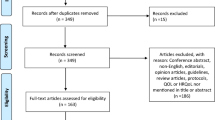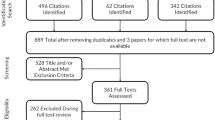Abstract
The Pediatric Quality of Life InventoryTM (PedsQLTM) is a relatively new instrument developed in the US to assess health-related quality of life (HRQL) in healthy and ill children and adolescents. It is quick and easy to use, suitable for assessment by children and parents and based on a modular approach with a generic measure addressing all general domains of HRQL and disease-specific modules. We report here the results of translating the original US generic core instrument and the cancer module into German and testing the German PedsQLTM in samples of paediatric patients who have been treated for cancer or epilepsy. Like in studies with the original instrument, score distributions tended to be skewed toward higher HRQL, but a full response range was demonstrated for each item. The German PedsQLTM is reliable in terms of internal consistency with the majority of scales exceeding a Cronbach's α of 0.70. Clinical validity was confirmed by differences between the cancer and epilepsy groups in the expected direction and by the ability of the PedsQLTM to discriminate between subjects with different degrees of medical and psychosocial sequelae. Comparing our findings to US results, the German PedsQLTM seems to be equivalent to the original version. Future methodologic research should evaluate construct validity, sensitivity and responsiveness, and test the usefulness of the instrument in other clinical populations and healthy children.
Similar content being viewed by others
References
Bradlyn AS, Ritchey AK, Harris CV, et al. Quality of life research in pediatric oncology. Cancer 1996; 78: 1333-1339.
Bullinger M, Ravens-Sieberer U. Stand der Forschung zur gesundheitsbezogenen Lebensqualität von Kindern: eine Literaturanalyse (State of the art of health-related quality of life research in children: A literature review). Prävent. und Rehab 1995; 7: 106-121.
Jenney MEM, Kane RL, Lurie N. Developing a measure of health outcome in survivors of childhood cancer: A review of the issues. Med Ped Oncol 1995; 24: 145-153.
Levi R, Drotar D. Critical issues and needs in health-related quality of life assessment of children and adolescents with chronic health conditions. In: Drotar D (ed.), Measuring Health-Related Quality of Life in Children and Adolescents, New Jersey: Erlbaum, 1998; 3-24.
Pal DK. Quality of life assessment in children: A review of conceptual and methodological issues in multidimensional health status measures. J Epidemiol Community Health 1996; 50: 391-396.
Parsons SK, Brown AP. Evaluation of quality of life of childhood cancer survivors: A methodological conundrum. Med Ped Oncol Suppl 1998; 1: 46-53.
Vance H, Morse RC, Jenney ME, Eiser C. Issues in measuring quality of life in childhood cancer: Measures, proxies, and parental mental health. J Child Psychol Psychiat 2001; 42: 661-667.
Varni JW, Seid M, Kurtin PS. Pediatric health-related quality of life measurement technology: A guide for health care decision makers. JCOM 1999; 6: 33-40.
Ravens-Sieberer U, Bullinger M. Assessing health-related quality of life in chronically ill children with the German KINDL: First psychometric and content analytical results. Qual Life Res 1998; 7: 399-407.
Landgraf JM, Maunsell E, Nixon-Speechley K, et al. Canadian-French, German and UK versions of the Child Health Questionnaire: Methodology and preliminary item scaling results. Qual Life Res 1998; 7: 433-445.
Felder-Puig R, Frey E, Sonnleithner G, et al. German cross-cultural adaptation of the Health Utilities Index and its application to a sample of childhood cancer survivors. Eur J Pediatr 2000; 159: 283-288.
Theunissen NCM, Vogels TGC, Koopman HM, et al. The proxy problem: Child report versus parent report in health-related quality of life research. Qual Life Res 1998; 7: 387-397.
Vogels T, Verrips GHW, Verloove-Vanhorick SP. Measuring health-related quality-of-life in children: The development of the TACQOL parent form. Qual Life Res 1998; 7: 457-465.
Billson AL, Walker DA. Assessment of health status in survivors of cancer. Arch Dis Childhood 1994; 70: 200-204.
Barr RD, Furlong W, Dawson S, et al. An assessment of global health status in survivors of acute lymphoblastic leukemia in childhood. Am J Pediatr Hematol Oncol 1993; 15: 284-290.
Bradlyn AS, Harris CV, Warner JE, et al. An investigation of the validity of the Quality of Well-Being Scale with pediatric oncology patients. Health Psychol 1993; 12: 246-250.
Kornblith AB, Anderson J, Cella DF, et al. Hodgkin disease survivors at increased risk for problems in psychosocial adaptation. Cancer 1992; 70: 2214-2224.
Apajasalo M, Sintonen H, Siimes MA, et al. Health-related quality of life of adults surviving malignancies in childhood. Eur J Cancer 1996; 32A: 1354-1358.
Shroff-Pendley J, Dahlquist LM, Dreyer Z. Body image and psychosocial adjustment in adolescent cancer survivors. J Pediatr Psychol 1997; 22: 29-43.
Felder-Puig R, Formann AK, Mildner A, et al. Quality of life and psychosocial adjustment of young patients after treatment of bone cancer. Cancer 1998; 83: 69-75.
Cramer JA, Westbrook LE, Devinsky O, et al. Development of the Quality of Life in Epilepsy Inventory for Adolescents: The QOLIE-AD-48. Epilepsia 1999; 40: 1114-1121.
Devinsky O, Westbrook L, Cramer J, et al. Risk factors for poor health-related quality of life in adolescents with epilepsy. Epilepsia 1999; 40: 1715-1720.
Sabaz M, Cairns DR, Lawson JA, et al. Validation of a new quality of life measure for children with epilepsy. Epilepsia 2000; 41: 765-774.
Sabaz M, Cairns DR, Lawson JA, et al. The health-related quality of life of children with refractory epilepsy: A comparison of those with and without intellectual disability. Epilepsia 2001; 42: 621-628.
Ronen GM, Rosenbaum P, Law M, Streiner DL. Health-related quality of life in childhood epilepsy: The results of children's participation in identifying the components. Dev Med Child Neurol 1999; 8: 554-559.
Wildrick D, Parker-Fisher S, Morales A. Quality of life in children with well-controlled epilepsy. J Neurosci Nurs 1996; 28: 192-198.
Hanai T. Quality of life in children with epilepsy. Epilepsia 1996; 37: 28-32.
Jalava M, Sillanpaa M, Camfield C, Camfield P. Social adjustment and competence 35 years after onset of childhood epilepsy: A prospective controlled study. Epilepsia 1997; 38: 708-715.
Austin JK, Shelton Smith M, Risinger MW, et al. Childhood epilepsy and asthma: Comparison of quality of life. Epilepsia 1994; 35: 608-615.
Hoare P, Mann H, Dunn S. Parental perception of the quality of life among children with epilepsy or diabetes with a new assessment questionnaire. Qual Life Res 2000; 9: 637-644.
Varni JW, Katz ER, Seid M, et al. The Pediatric Cancer Quality of Life Inventory (PCQL): I. Instrument development, descriptive statistics, and cross-informant variance. J Behav Med 1998; 21: 179-204.
Varni JW, Katz ER, Seid M, et al. The Pediatric Cancer Quality of Life Inventory-32 (PCQL-32): I. Reliability and validity. Cancer 1998; 82: 1184-1196.
Varni JW, Seid M, Rode CA. The PedsQLTM: Measurement model for the Pediatric Quality of Life Inventory. Med Care 1999; 37: 126-139.
Varni JW, Jacobs JR, Seid M. Adherence as a predictor of health-related quality of life: An integrative conceptual model. In: Drotar D (ed.), Promoting Adherence to Medical Treatment in Chronic Childhood Illness, New Jersey: Erlbaum, 2000; 287-305.
Varni JW, Seid M, Kurtin PS. The PedsQLTM 4.0: Reliability and validity of the pediatric quality of life inventoryTM version 4.0 generic core scales in healthy and patient populations. Med Care 2001; 39: 800-812.
Varni JW, Seid M, Knight TS, et al. PedsQLTM 4.0 Generic Core Scales: Sensitivity, responsiveness, and impact on clinical decision-making. J Behav Med 2002; 25: 175-193.
Varni JW, Burwinkle TM, Katz ER, et al. The PedsQLTM in paediatric cancer: Reliability and validity of the Pediatric Quality of Life InventoryTM Generic Core Scales, Multidimensional Fatigue Scale, and Cancer Module. Cancer 2002; 94: 2090-2106.
Varni JW, Seid M, Knight TS, et al. The PedsQLTM in pediatric rheumatology: Reliability, validity, and responsiveness of the Pediatric Quality of Life InventoryTM Generic Core Scales and Rheumatology Module. Arthritis Rheum 2002; 46: 714-725.
Guillemin F, Bombardier C, Beaton D. Cross-cultural adaptation of health-related quality of life measures: Literature review and proposed guidelines. J Clin Epidemiol 1993; 46: 1417-1432.
Bortz J. Lehrbuch der empirischen Forschung fuer Sozialwissenschaftler (Textbook of Empirical Research for Social scientists). Berlin: Springer, 1984.
Seidenberg M, Beck N, Geisser M, et al. Academic achievement of children with epilepsy. Epilepsia 1986; 27: 753-759.
Eiser C, Morse R. Can parents rate their child's health-related quality of life? Results of a systematic review. Qual Life Res 2001; 10: 347-357.
Doose H. Epilepsien im Kindes-und Jugendalter (Epilepsy in Childhood and Adolescence). Hamburg: Desitin Arzneimittel GmbH, 1995.
Carpay HA, Vermeulen J, Stroink H, et al. Disability due to restrictions in childhood epilepsy. Dev Med Child Neurol 1997; 39: 521-526.
Lozowski SL. Views of childhood cancer survivors. Selected perspectives. Cancer 1993; 71: 3354-3357.
Stuber ML, Nader K, Yasuda P, et al. Post-traumatic stress after childhood cancer II: A family model. Psycho-Oncology 1994; 3: 313-319.
Meadows AT, Hobbie WL. The medical consequences of cure. Cancer 1986; 58: 524-528.
Collier J, MacKinlay D, Phillips D. Norm values for the Generic Children's Quality of Life Measure (GCQ) from a large school-based sample. Qual Life Res 2000; 9: 617-623.
Simeoni MC, Auquier P, Antoniotti S, et al. Validation of a French health-related quality of life instrument for adolescents: The VSP-A. Qual Life Res 2000; 9: 393-403.
Stolk EA, Busschbach JJV, Vogels T. Performance of the EuroQol in children with imperforate anus. Qual Life Res 2000; 9: 29-38.
Sawyer MG, Spurrier N, Whaites L, et al. The relationship between asthma severity, family functioning and the health-related quality of life of children with asthma. Qual Life Res 2001; 9: 1105-1115.
Eiser C, Mohay H, Morse R. The measurement of quality of life in young children. Child Care Health Dev 2000; 26: 401-414.
Author information
Authors and Affiliations
Rights and permissions
About this article
Cite this article
Felder-Puig, R., Frey, E., Proksch, K. et al. Validation of the German version of the Pediatric Quality of Life InventoryTM (PedsQLTM) in childhood cancer patients off treatment and children with epilepsy. Qual Life Res 13, 223–234 (2004). https://doi.org/10.1023/B:QURE.0000015305.44181.e3
Issue Date:
DOI: https://doi.org/10.1023/B:QURE.0000015305.44181.e3




